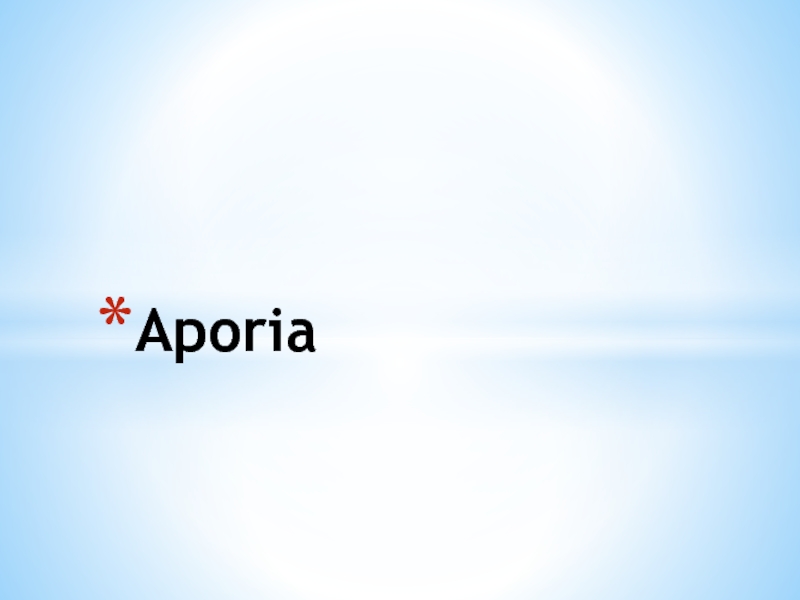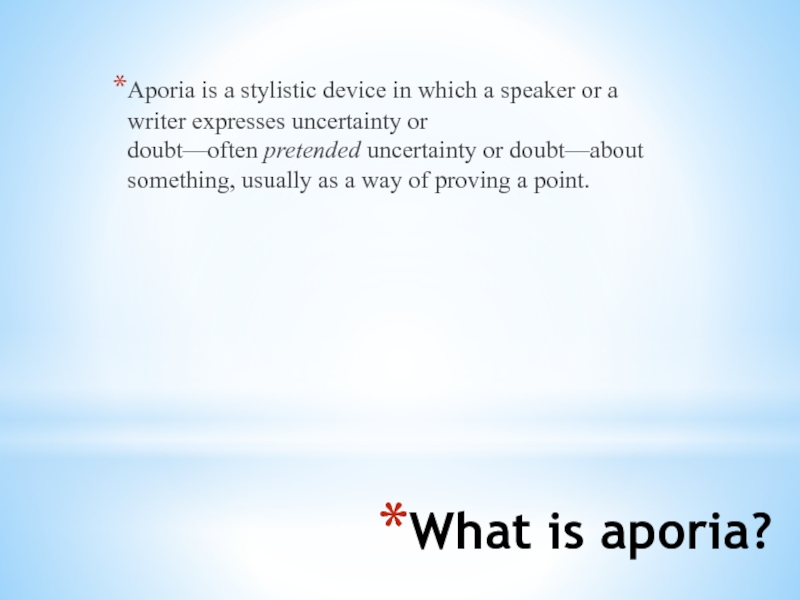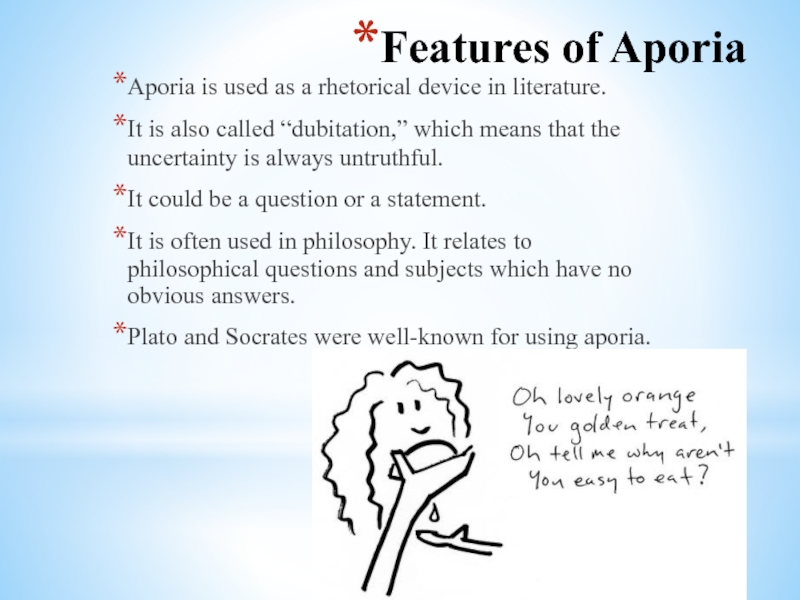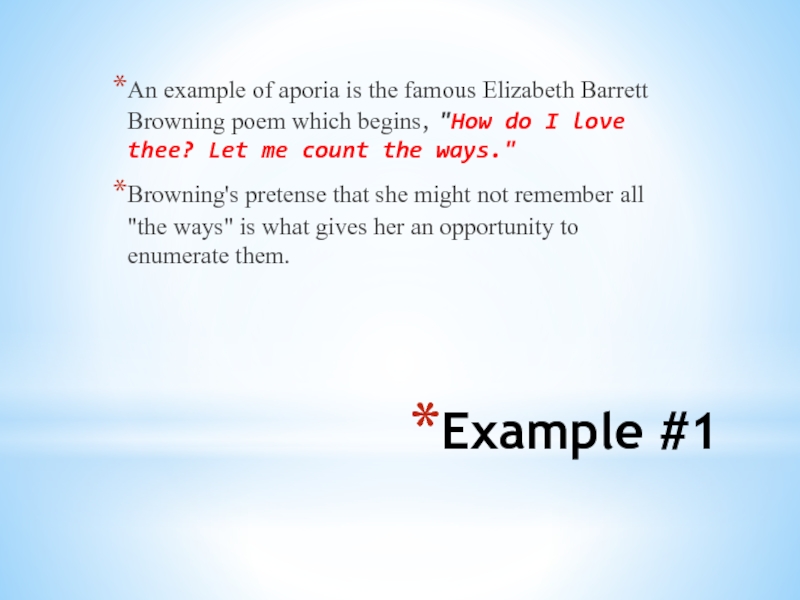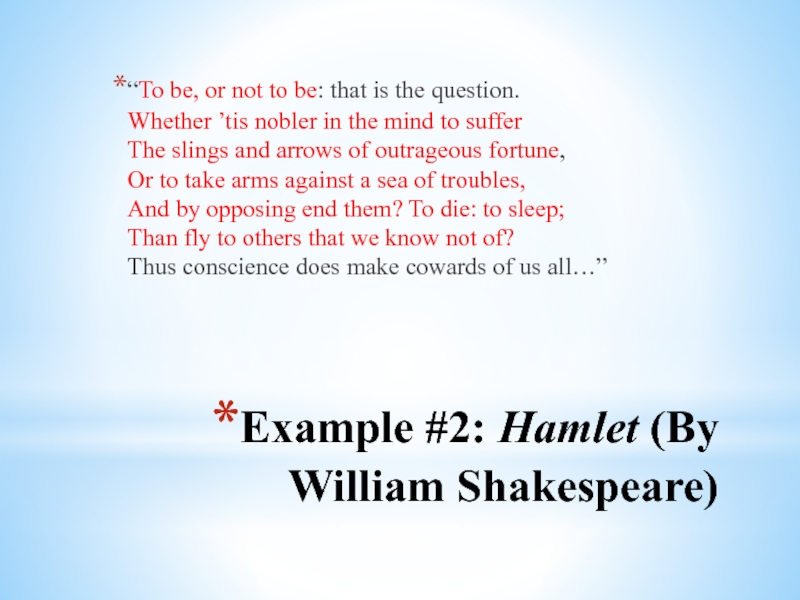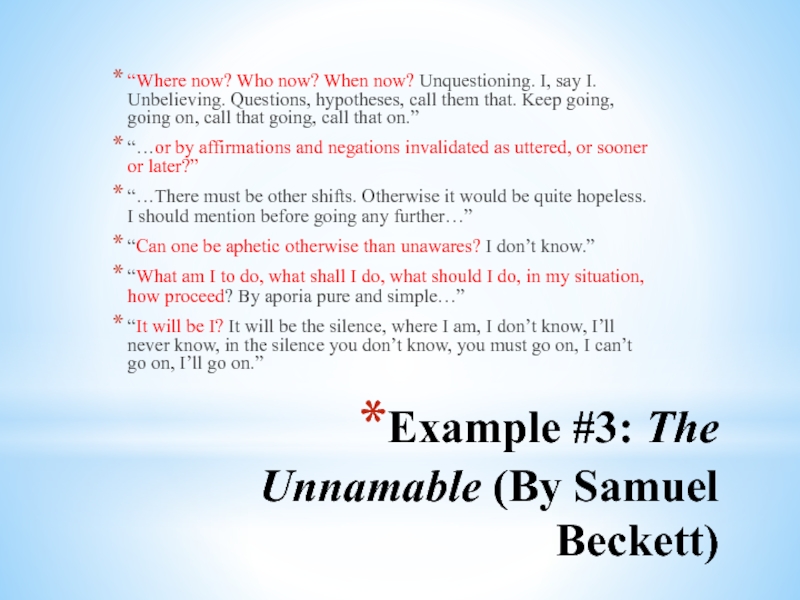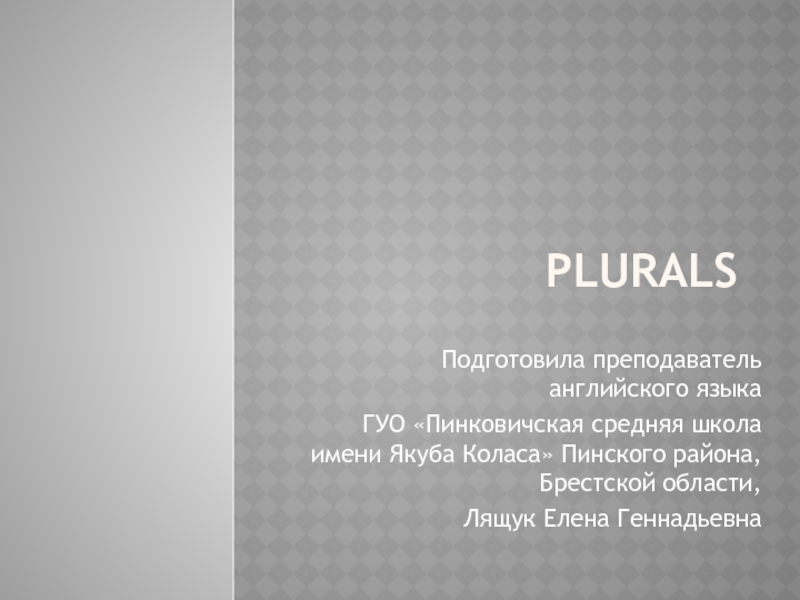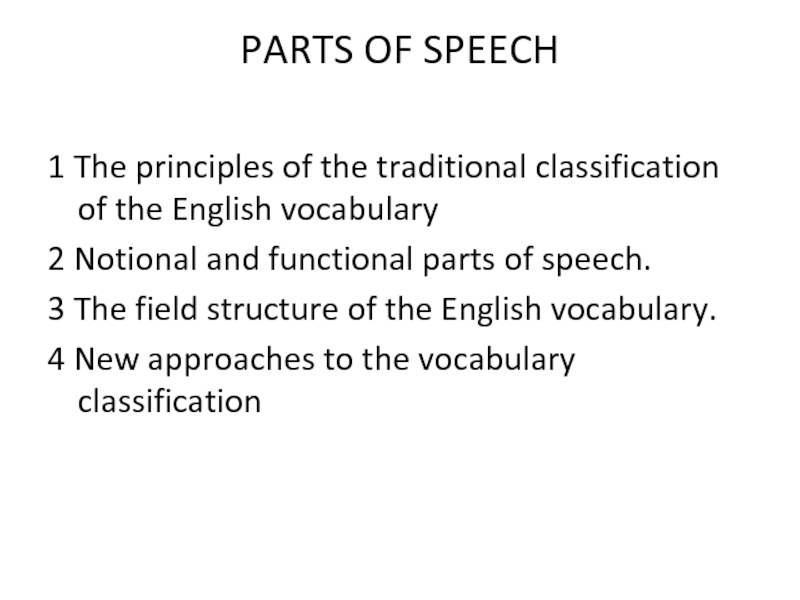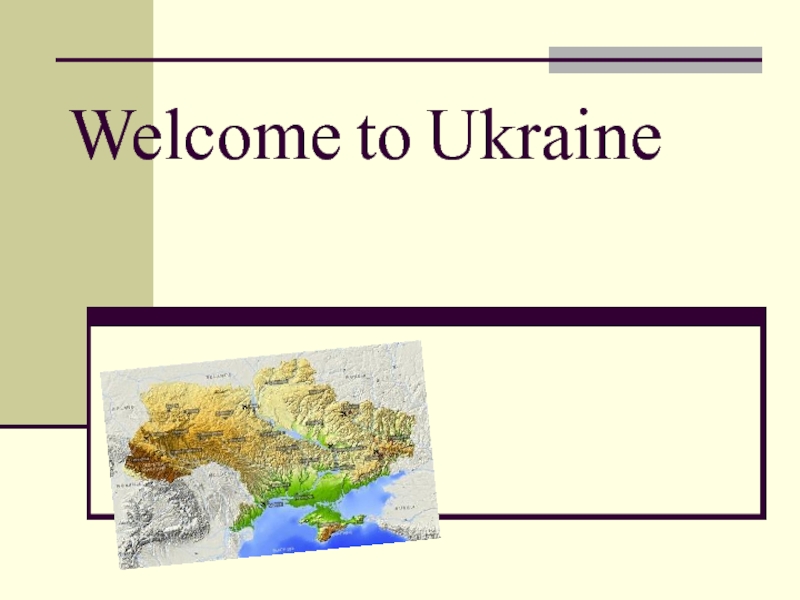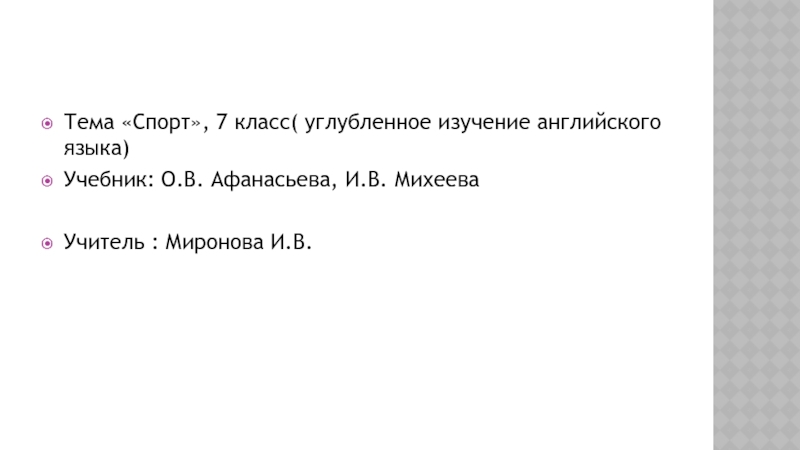- Главная
- Разное
- Дизайн
- Бизнес и предпринимательство
- Аналитика
- Образование
- Развлечения
- Красота и здоровье
- Финансы
- Государство
- Путешествия
- Спорт
- Недвижимость
- Армия
- Графика
- Культурология
- Еда и кулинария
- Лингвистика
- Английский язык
- Астрономия
- Алгебра
- Биология
- География
- Детские презентации
- Информатика
- История
- Литература
- Маркетинг
- Математика
- Медицина
- Менеджмент
- Музыка
- МХК
- Немецкий язык
- ОБЖ
- Обществознание
- Окружающий мир
- Педагогика
- Русский язык
- Технология
- Физика
- Философия
- Химия
- Шаблоны, картинки для презентаций
- Экология
- Экономика
- Юриспруденция
Aporia. Features of Aporia презентация
Содержание
Слайд 2What is aporia?
Aporia is a stylistic device in which a speaker
or a writer expresses uncertainty or doubt—often pretended uncertainty or doubt—about something, usually as a way of proving a point.
Слайд 3Features of Aporia
Aporia is used as a rhetorical device in literature.
It
is also called “dubitation,” which means that the uncertainty is always untruthful.
It could be a question or a statement.
It is often used in philosophy. It relates to philosophical questions and subjects which have no obvious answers.
Plato and Socrates were well-known for using aporia.
It could be a question or a statement.
It is often used in philosophy. It relates to philosophical questions and subjects which have no obvious answers.
Plato and Socrates were well-known for using aporia.
Слайд 4Example #1
An example of aporia is the famous Elizabeth Barrett Browning
poem which begins, "How do I love thee? Let me count the ways."
Browning's pretense that she might not remember all "the ways" is what gives her an opportunity to enumerate them.
Browning's pretense that she might not remember all "the ways" is what gives her an opportunity to enumerate them.
Слайд 5Example #2: Hamlet (By William Shakespeare)
“To be, or not to be: that is
the question.
Whether ’tis nobler in the mind to suffer
The slings and arrows of outrageous fortune,
Or to take arms against a sea of troubles,
And by opposing end them? To die: to sleep;
Than fly to others that we know not of?
Thus conscience does make cowards of us all…”
Слайд 6Example #3: The Unnamable (By Samuel Beckett)
“Where now? Who now? When now? Unquestioning.
I, say I. Unbelieving. Questions, hypotheses, call them that. Keep going, going on, call that going, call that on.”
“…or by affirmations and negations invalidated as uttered, or sooner or later?”
“…There must be other shifts. Otherwise it would be quite hopeless. I should mention before going any further…”
“Can one be aphetic otherwise than unawares? I don’t know.”
“What am I to do, what shall I do, what should I do, in my situation, how proceed? By aporia pure and simple…”
“It will be I? It will be the silence, where I am, I don’t know, I’ll never know, in the silence you don’t know, you must go on, I can’t go on, I’ll go on.”
“…or by affirmations and negations invalidated as uttered, or sooner or later?”
“…There must be other shifts. Otherwise it would be quite hopeless. I should mention before going any further…”
“Can one be aphetic otherwise than unawares? I don’t know.”
“What am I to do, what shall I do, what should I do, in my situation, how proceed? By aporia pure and simple…”
“It will be I? It will be the silence, where I am, I don’t know, I’ll never know, in the silence you don’t know, you must go on, I can’t go on, I’ll go on.”
